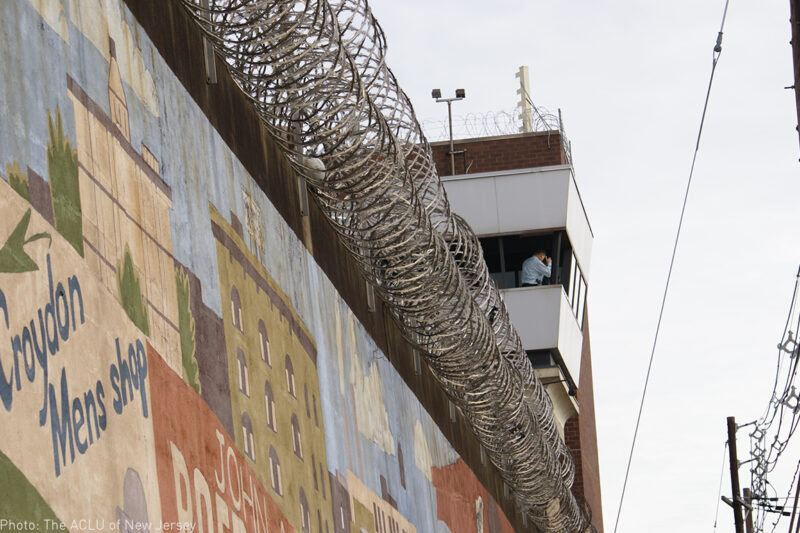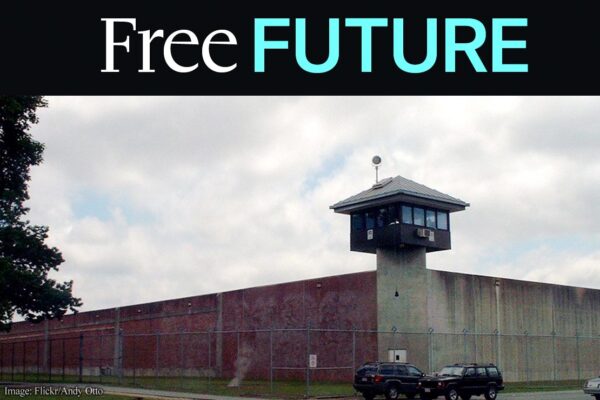
Earlier in May, the Trump administration fired Amy Lopez, the first superintendent of the education system in the federal Bureau of Prisons, a position created by President Barack Obama.
This decision signals a tragic departure from what had been a growing acknowledgment of the importance of education for those locked up in our nation’s prisons.
Making education available for all people in prison is essential. At the ACLU of New Jersey, we have focused particularly on the need to provide education to young people — age 21 and under — who are incarcerated in adult prisons. Because members of this group are in prison at a time when their peers are in school, the lack of education is a particularly pronounced setback. Moreover, because most will leave prison in time to return to the workforce, they, and we, stand to benefit enormously from educational opportunities during incarceration. Finally, the law guarantees a right to education for young people, whether or not they are incarcerated.
But more simply, incarcerated young people are students in need of enrichment, not monsters in need of containing. The young people I have spoken to and represented have consistently expressed a desire to understand more about the world, to better connect with others, and to participate productively in the economy — and they know education is the way to get there.
Michael, for example, has doggedly fought the New Jersey Department of Corrections for more than two years to obtain the education he’s hungry for — and legally entitled to. The joy of another client of mine, Robert, was evident when his family beamed with pride when he finally received his high school diploma after nearly three years of classes in prison. (Their names have been changed in this piece for their privacy.)
Those of us whose children are not in prison would never accept 45 minutes of school per day — if classes are held at all — for our kids. When we understand that all young people incarcerated in America are our kids, we cannot accept these conditions for them either.
New Jersey currently locks up about 700 people 21 or younger in our adult prisons. The education they receive while incarcerated routinely flouts legal requirements. Students receive limited or no in-person instruction in classes, and students with special education needs do not receive the services to which they’re entitled.
This dearth of education is particularly troubling in light of the staggering racial disparities in prisons nationwide — disparities that are even more pronounced in New Jersey. In the Garden State, well over three-quarters of prisoners are people of color.
Incarcerated young people are students in need of enrichment, not monsters in need of containing.
The ACLU of New Jersey, along with Disability Rights Advocates and Proskauer Rose LLP, filed a class-action lawsuit in federal court in January challenging these practices. We have demanded that the state’s Department of Corrections and Department of Education provide legally compliant special education for young people in the care of the prison system.
Few advocates are taking on the problem of education in prison — the ACLU has been a leader in this area of the law, and this suit is one of the only ones like it in the country. And now with the firing of Amy Lopez, vulnerable young people have lost a crucial ally and national leadership in fighting for their legally guaranteed right to an education.
Education for incarcerated young people is not just a moral imperative — it benefits all taxpayers. Nationwide, only about 16 percent of state prisoners have high school diplomas, which bodes poorly for their prospects of future employment, economic independence, and likelihood of reincarceration. The median earnings for young people with high school diplomas are about 20 percent higher than those for young people without diplomas. These higher incomes allow people to start families and boost the economy through their greater purchasing power.
When individuals participate in any kind of educational program within a prison, their chances of future incarceration drop by 13 percent. As a result, every dollar spent on education for incarcerated people produces savings of four to five dollars in reincarceration costs.
The Trump administration’s policy is short-sighted and heartless, and it undermines the federal leadership we saw on this issue under the Obama administration. Nevertheless, of the 2.3 million people who are incarcerated in America, only 197,000 are in federal prisons. States still have an opportunity to lead on education for incarcerated young people. When the Trump administration rejects compassion and financial common sense by gutting education for incarcerated young people, it hurts all of us.
States must step in to help.



